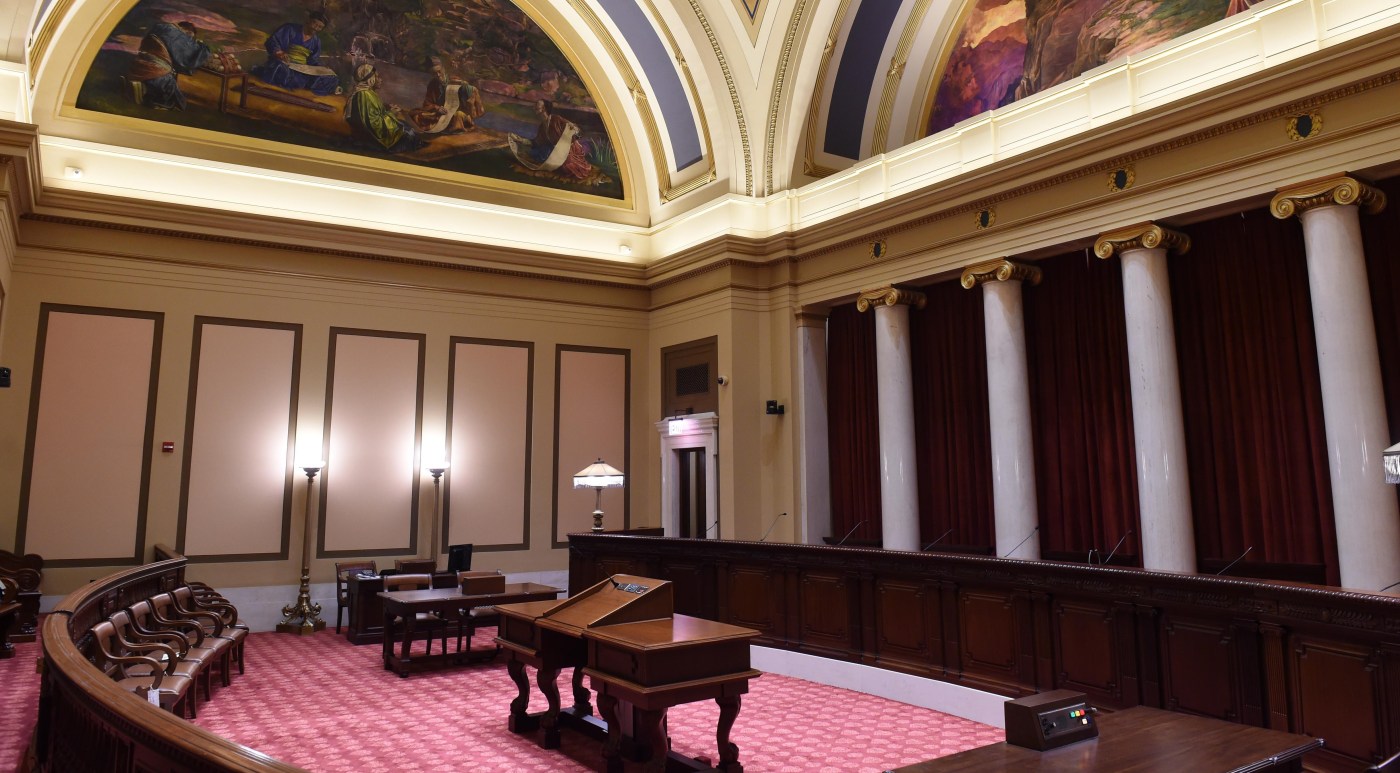
Minnesota Supreme Court to hear felon voting rights case
Minnesota’s Supreme Court is set to decide the fate of voting rights for felons on supervised release, with oral arguments scheduled Monday in a conservative group’s challenge to the new law.
Last year Gov. Tim Walz signed a bill restoring the vote to around 55,000 Minnesotans with felony convictions who had been released but are still on probation. The change came after decades of effort at the Capitol and an unsuccessful American Civil Liberties Union lawsuit to challenge the previous restriction.
Lawmakers moved quickly last spring to restore voting rights after the Supreme Court ruled against the ACLU challenge, and said the issue was up to the state Legislature. But soon after the bill became law, a conservative legal group filed a challenge in Anoka County.
The Minnesota Voters Alliance argued the law couldn’t stand because the state Constitution says people can vote once their civil rights are restored, meaning they need to complete their entire sentence, including probation.
An Anoka County judge dismissed the conservative group’s challenge in December 2023, ruling the Minnesota Voters Alliance didn’t have standing to intervene. The group appealed the case directly to the Supreme Court, and in January justices said they’d grant the case accelerated review.
Twenty-three states restore voting rights upon release from incarceration, according to the National Conference of State Legislatures. Maine, Vermont and Washington, D.C. allow incarcerated people to vote.
Minnesota was one of 16 states, including South Dakota and Wisconsin, that only allowed people with felony convictions to vote after completing their entire sentence, including probation.
The Minnesota Voters Alliance lawsuit was one of two challenges to the felon voting rights law since it went into effect last year.
In October, a Mille Lacs County judge told people convicted of felonies in his court that they could not vote as part of their sentencing.
The Mille Lacs County judge said the law was unconstitutional, but the Minnesota Court of Appeals said he did not have the authority to make that ruling.
Related Articles
St. Paul attorney barred from practicing law after accusations of pocketing settlement money from Hmong clients
Minnesota Chief Justice Natalie Hudson: On the importance of a fair and independent judiciary
Harry Niska: To protect democracy? People and their representatives, not judges, should make political choices
Letters: What will our new Professional Women’s Hockey League team be called?
A second Minnesota Supreme Court justice announces retirement


